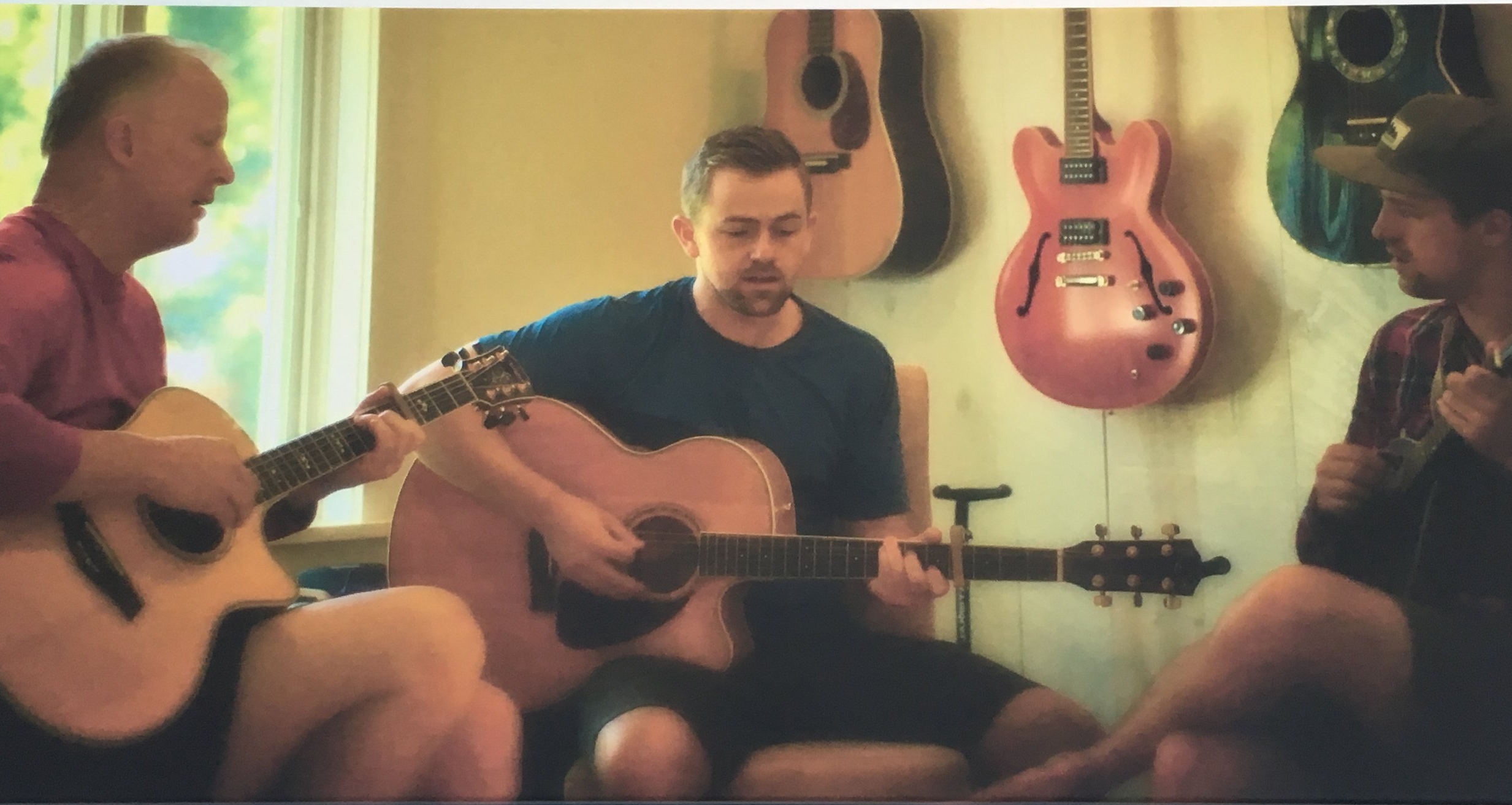I love Christmas. While the day has profound significance for my faith and hope for humanity, I also love the secular traditions, the creativity in all forms of decoration, the festivity at the very time that nature is tucking in for its annual somnambulance and how deeply family bonds are felt during the Christmas season.
For me, the Christmas soundtrack pervades all of this. While I enjoy the traditional pop Christmas songs and carols, I delight in finding new, original Christmas songs or traditional songs done in a way that illuminates their meaning in a new way. So, without further ado, here is my Top 10 Christmas list of albums and some individual songs for your use (each title links to the album or song on Spotify):
1. Christmas by Bruce Cockburn: At some point, I’ll do a “Singer Songwriter Spotlight” blog entry on Canada’s Bruce Cockburn because he is probably my favorite songwriter, not to mention an amazing guitarist. This album consists of a few originals but the remaining songs are Cockburn’s resurrection of forgotten songs or his take on some classics. As he says in his liner notes, there are no “Jingle Bell Rocks” on the album as all the songs tie in one way or another to the Christmas Story. Maybe the best example of the breadth of the album is “Riu Rui Chiu” which dates to 1556 and is sung by the Canadian in Old Spanish.
2. My Holiday by Mindy Smith: Mindy Smith is a gifted songwriter who has put out some really good folk/pop albums but has never quite hit the big time. Oddly, despite writing some terrific original songs, her version of Dolly Parton’s “Jolene” is as close as she’s come to a hit song. Her most popular release has been this Christmas album. There are three or four original tunes that are all outstanding and covers of some traditional tunes that are tastefully done. Her father was a pastor which may have influenced her artistry in capturing the feel of the season so well. Whatever the source, this album probably wins the prize for the most plays in our household every year at Christmas.
3. A Christmas Album by Amy Grant: Amy Grant (or her label) has developed Christmas albums as a profit center for her career. Unlike most successful artists who put out the obligatory single Christmas album, Amy has several. But this was her first and, I think, her best. Her later Christmas albums tend toward perfunctory radio renditions. This first album, however, maintains a “bundle up, go to Christmas Eve services and come home and drink egg nog in front of the fire” feel to it. And the line in the first song “I know there’s more snow up in Colorado than my roof will ever see” always takes me back to my years living in Colorado and the White Christmases my family had there.
4. Silent Night: Songs for Christmas by Mahalia Jackson: This 1962 release was boring to me as a little kid but grew on me as the years went by. I came to appreciate that nobody, and I mean nobody, can sing a gospel song like Mahalia Jackson. Listen to her version of “Go Tell It On The Mountain” and experience the soul of Christmas.
5. The Christmas Song by Nat King Cole: Kind of a no brainer to include on any Top 10 list.
6. The Dean Martin Christmas Album: Definitely the most played Christmas album in the McKim house in my youth. It’s all the pop hits but, Mom was right, Dean could sing.
7. Wintersong by Sarah McLachlin: Like Amy Grant, Sarah McLachlin has found Christmas music to be a niche because she has put out a few albums in the genre. This one, however, is ideal for snuggling in by the tree with your honey. It’s a beautiful album.
8. Midwinter by Peter Mayer: A wonderful collection that lives up to its name. It’s all good but “Christmas Morning” alone is worth the whole album.
9. Let There Be Peace on Earth by Vince Gill: A solid album of Christmas favorites that would qualify as an above average entry until the last two songs “Til the Season Comes Around Again” and “It Won’t Be the Same This Year.” Have tissue nearby.
10. The Christmas Album by Nitty Gritty Dirt Band: The most country/bluegrass album on this list. It’s a fun Christmas album but the first song “Colorado Christmas” is all about being in L.A. for Christmas yet wanting to be home in Colorado. I spent many years having that experience. Fortunately, unlike the songwriter, I had family in L.A., but my favorite year was when they all joined us in Colorado for Christmas.
Some individual songs for your Christmas playlist:
Sing, Angels, Sing (Hark the Herald Angels Sing) by Nicole C. Mullen: In case you like to dance at Christmastime.
Cry of a Tiny Babe by Bruce Cockburn: This song was not on his Christmas album but is his take on the Christmas Story. I love this song.
Heaven Everywhere by Francesca Battistelli: Wonderful melody and sentiment.
Reunion Song by Ricky Skaggs: Sweet and catchy.
And, finally,
an original Christmas song by J.C. McKim:
